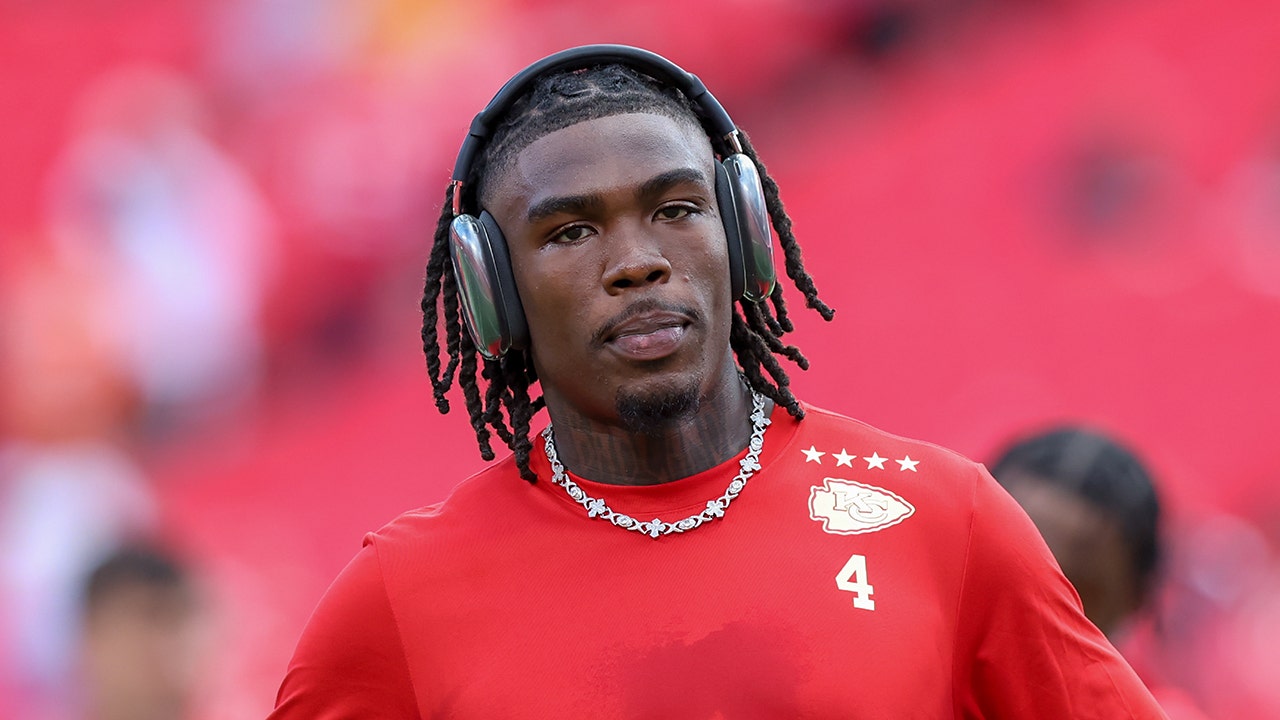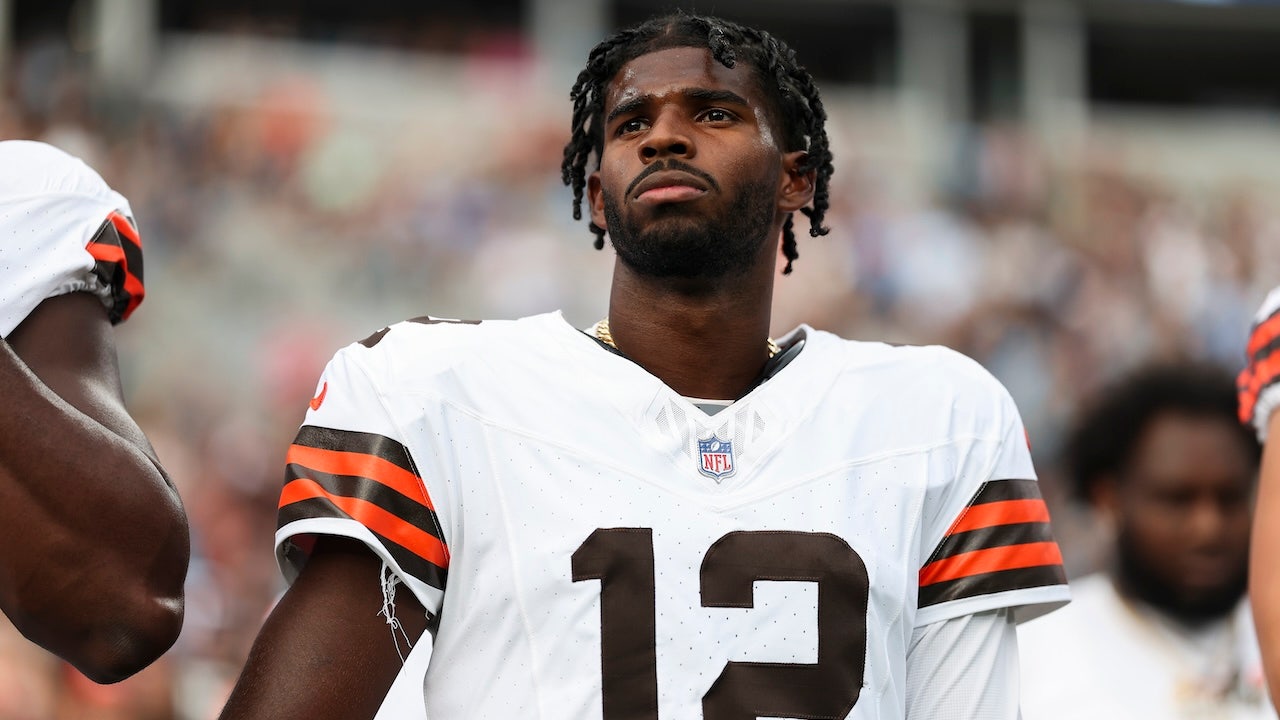AI thinks you’re evil: an interview with artist Gretten Andrew

[ad_1]
There’s a fine line between lip fillers and techno-apocalypse, and Gretchen Andrews tows that line with her latest Universal beauty Series. This series, recently discovered by the Whitney in New York, revealed the preferences of the hidden algorithms that define our standards of beauty. Levels that even the world’s most competitive contestants can’t miss. In our conversation, Andrew and I discuss the impossible ways – how to achieve human relationships that consume people’s relationships with their bodies and their faces to homogenize faces around the world. What is at stake? “All the diversity of humanity has been lost,” according to the singer.
Greetchen, an ex-gogler, is a silicon valley drow. After being disappointed by the way technology is designed to exploit users and you see the culture that has punished it by dressing like cher from cher from -With skillGretchen left tech to pursue a career in art. In the world of art, she felt free to use technology in a variety of ways and wear short skirts as a form of female personality 3.0. His past projects: Dry thirst glitch gifswhere he uses SEO hacks to make his Vision Board feature a top search result for “Contemporary action Record,” they capture the artist’s drive perfectly.


Gretchen could continue to carry on this line, using her glamor to expose technical gaps while promoting her brand. However, Universal beauty mark to go. Or maybe it’s evolution or maturity. Not for Gretchen’s interests, but for her tricks. The focus is less on him obviously and more on the technology that is all over the place. It makes us feel eternally inadequate. He is evil forever. While keeping us wanting more of this feeling. And Gretchen will be the first to admit that she is nothing more than a social media addict. But acceptance, whether through his work or his words, is always the first step.
First of all, congratulations on your discovery of whitney. What can you tell us about Facetune graphics The project, and the work received?
between Facetune graphicsI look at how AI’s standards of excellence impact how we see ourselves and how we interact with others. I take the mainstream — whether it’s digital manipulation or the approach to things like lip fillers and plastic surgery — and make it visible so we can talk about it. In my series of universal beauty, I look at the competition of the competition sites from all over the world – they are very beautiful – they are absolutely beautiful – but they are not good enough for the algorithms, they gave us all completely. Not only that, but the contestants come from all over the world. They should look completely different, but we see the positive impact of AI when we see Miss Jamaica is given the same body as Miss Finland is given the same body as Miss Philippines. It compresses all humanity into one unified view.
Define aesthetic beauty. What does the algorithm think is good?
We have grown accustomed to seeing each other and ourselves on a two-sided screen. And because screens are flat, our expectations of what it should look like to combine simulation efforts is that of a third dimension in a two-dimensional space. One example has very large lips. Some people really like the way those big lips look from the front, but no one thinks they look good from the side. That’s why we get memes around “Duck Lip.” There’s this prioritization of making sure we look good on screen. It reminds me of ancient Egyptian art. The reason why hieroglyphics have contrasting bodies is that, within a two-dimensional space, the Egyptians wanted to convey three dimensions of the body. So they represent each part of the body from its visible angle and kind of sticking it all together. That really happens today with our cameras and algorithms: we try to convey the dimensions of the 2D time of the screen.


What is lost when we do that?
All of humanity’s diversity has been lost. There have always been standards of excellence, but never before has there been a single, universal, international quality. We also lose touch with our real bodies. We prioritize how people look over what they do. We prioritize how we look and how we feel. In that shell, we lose the connections that are really important to us. Another thing we are losing is individual celebration. I don’t just see the desire to be beautiful, but the desire to be like everyone else. They feel safer in people today than they look like you.
How is this different from the ’90s, before there was social media, when the media was dominated by a few channels or vogue, and these western exports set the standards of great beauty around the world?
I think with AI, the speed and consistency of this has increased tremendously. Although there was this Western standard of beauty before, maybe there was a different beauty in Japan or Kenya. With AI, there has been an acceleration of this common aesthetic encounter. Anyone – they don’t need great Photoshop skills – can take their picture, process it with algetune algorithm, then go to a plastic surgeon and say: Make me look like this, what will happen.
I’ve read research out of Cornell that 0.2 percent of the data used to train AI comes from Africa and South America. Do you know that most of the information is trained that the best algorithms come from?
We are in the process of responding, especially through social media. I’m sure you’ve noticed that if you post a picture of your face or other people, you might be greeting them. I don’t think that’s because that’s what people want to see. I think these platforms drive more engagement to get more images of faces and bodies to train their algorithms. I think Instagram, by volume, must be in the west. And it’s not so much about using it as it is about the number of images people see. For example, many fans have so many followers and so many exposures. It doesn’t matter how many ordinary people use the app, most of the people see pictures that look like the ones with the logos.


What made you want to tackle social media and standards of excellence in your work?
I like to find things that seem innocent, serious and feminine and use them as opportunities to have conversations about technology and its impact on our lives. Beauty standards seem like a mature area where most people don’t think about AI or the technological apocalypse, so it was a very wide door to have these conversations. In addition, I think a lot about the physical and psychological aspects of unity that we as women struggle with in order to meet expectations. I’m approaching 40, and my friends are getting botox or plastic surgery. This project is not about bashing women for these things. It’s about understanding where standards come from and making decisions there.
Can you talk about your decision to turn these digital photos into oil paintings with an oil printer?
I wanted to create an image that showed both us and who we were told to be at the same time. I wanted to represent this in a way that would be part of the history of portraiture. Paintings have always shown what we like at any given time. I am also looking after my big family. Look at my jewelry. Look at my world behind me. Within this current world of AI, I wanted to investigate what is important to us, and I think what is important to us is worth entering.
What do you think of celebrities like Sarah Jessica Parker who refuse to get plastic surgery?
Celebrities like this are really important. They remind us that beauty can exist without an algorithm. But then again, he’s not trying today. He’s already a big deal, and he can make a stand now in a way that I think is very important and interesting. What I really want is to see someone very young make that decision and succeed. I think it will be very difficult.
Absolutely. I read the memoir People who don’t care by Sarah Wynn Williams. It’s a damning image of Facebook and Mark Zuckerberg. After I read it, I was very active, and I was like, ‘I have to get out of social media.’ And of course, I didn’t. So my question is, what is awareness? There is an idea that it changes things. But my question is: Do you do it?
In terms of what you do, I think it allows us to make choices, even if we continue to use fillers and get lip fillers. Technology has made things so seamless that we have descended into a mindless world where people inject things into their lips that they bought on Alibaba, and it happens to be cement. This is becoming the norm very quickly. I truly believe that social media is going to be the cigarette of our generation, affecting mental health. We are here, we know it is bad for us, still smoking. When I put on this phone, maybe I’ll get to Instagram a second time. Awareness won’t win the war, but at least it’s a way to see what’s going on and maybe have more agency, even if society is completely under attack.
My final question is, If social media is like cigarettes and bad for us, why are we still using them?
Because I’m addicted.
Yes, me too.
Lots of art talks
[ad_2]





